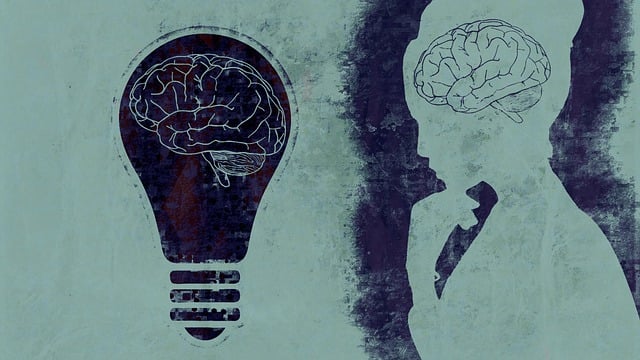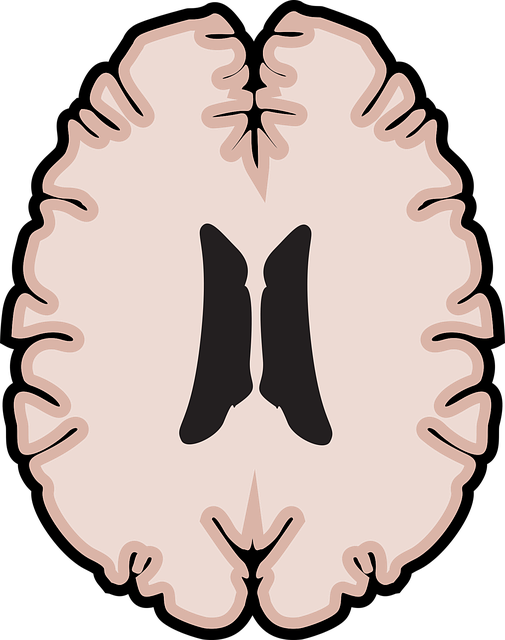The text explores the impact of stigma on mental illness care, particularly psychosis therapy, and introduces Lakewood Psychosis Therapy as a revolutionary approach. It highlights the negative societal perception of mental health issues, causing individuals to avoid necessary treatment. The article emphasizes the power of education in combatting this stigma through curriculum integration, early intervention, and community workshops. Lakewood Psychosis Therapy offers personalized, innovative treatments, focusing on long-term wellness and healthcare provider burnout prevention. Open conversations facilitated by such organizations normalize mental health discussions, create safe spaces, and advocate for societal changes. Community engagement, including support networks and advocacy, is crucial in reducing stigma and improving mental health care accessibility.
Mental illness stigma, a pervasive barrier to treatment, continues to impact millions globally. This article delves into comprehensive strategies for stigma reduction, exploring its profound effects on mental health seekers. From education initiatives to innovative treatments like Lakewood Psychosis Therapy, we dissect effective approaches. Additionally, we emphasize the significance of open conversations and community engagement in fostering support networks, ultimately advocating for a more understanding society.
- Understanding Stigma: Its Impact on Mental Health Seekers
- The Role of Education in Breaking Down Stigma Barriers
- Lakewood Psychosis Therapy: A Case for Innovative Treatment Approaches
- Encouraging Open Conversations to Reduce Stigma
- Community Engagement and Advocacy: Fostering Support Networks
Understanding Stigma: Its Impact on Mental Health Seekers

Stigma surrounding mental illness can have a profound impact on individuals’ willingness to seek help, often creating a barrier between people and the support they need. This phenomenon, known as the mental health stigma, refers to the negative attitudes, beliefs, and stereotypes associated with mental disorders. It manifests in various ways, from casual dismissals of someone’s struggles to systemic discrimination within healthcare settings. For those experiencing conditions like psychosis, the consequences can be especially severe. Many individuals facing psychotic episodes feel ashamed or fear judgment, leading them to avoid professional Lakewood psychosis therapy despite its potential life-changing benefits.
The impact of stigma extends beyond personal feelings of embarrassment or shame. It contributes to a culture where mental illness is often hidden or ignored, hindering open conversations about the challenges people face. This secrecy can isolate individuals and prevent them from developing coping strategies or accessing valuable resources. Encouraging positive thinking and promoting mental wellness through initiatives such as the Mental Wellness Podcast Series Production can play a significant role in counteracting stigma. By providing information, sharing personal stories, and fostering open dialogue, these efforts help to normalize conversations about mental health, ultimately encouraging individuals to embrace support without fear of judgment.
The Role of Education in Breaking Down Stigma Barriers

Education plays a pivotal role in breaking down stigma barriers surrounding mental illness. By incorporating topics like psychosis, emotional intelligence, mood management, and confidence boosting into educational curricula, we can foster a more compassionate and informed society. Schools, universities, and workplaces can serve as powerful platforms to dispel myths and misconceptions about mental health issues, encouraging empathy and support for individuals facing challenges.
Lakewood Psychosis Therapy initiatives often emphasize the importance of early intervention and prevention through education. Educating both the general public and at-risk populations about recognizing symptoms, understanding treatment options, and promoting self-care strategies can significantly reduce stigma. Through interactive workshops, seminars, and peer-led discussions, individuals gain valuable insights into their own emotional experiences and learn to support peers facing mental health struggles, ultimately contributing to a more inclusive and supportive community.
Lakewood Psychosis Therapy: A Case for Innovative Treatment Approaches

Lakewood Psychosis Therapy represents a significant shift in how we approach mental health treatment, particularly for conditions like psychosis. By embracing innovative techniques, this modern therapy goes beyond traditional methods to offer tailored support and recovery pathways. The focus on personalized care leverages advancements in neuroscience and psychological research, ensuring that individuals receive treatment aligned with their unique needs. This holistic approach not only addresses symptoms but also fosters inner strength development and self-esteem improvement, crucial elements for long-term wellness.
Incorporating burnout prevention strategies for healthcare providers is another intelligent aspect of Lakewood Psychosis Therapy. Recognizing the strain mental health professionals often face, this approach promotes sustainable practices that sustain both providers’ well-being and their ability to offer optimal care. By combining cutting-edge treatments with compassionate support for caregiving staff, Lakewood sets a new standard in mental illness stigma reduction efforts, paving the way for more effective and accessible healing experiences.
Encouraging Open Conversations to Reduce Stigma

Encouraging open conversations is a powerful strategy in the ongoing battle against mental illness stigma. By fostering dialogue, individuals with personal experiences of mental health challenges can share their stories, helping to dispel myths and misconceptions that often surround such conditions. This approach, championed by organizations like Lakewood Psychosis Therapy, leverages the power of human connection to normalize discussions about mental wellness, promoting understanding and empathy within communities.
Incorporating compassion cultivation practices into these conversations is paramount. Mental health professionals play a crucial role in facilitating safe spaces where individuals feel comfortable expressing their struggles. Moreover, a thorough risk assessment ensures that these interactions are handled with the utmost care, addressing potential triggers and ensuring the well-being of all participants. Through such efforts, we contribute to a broader mental health policy analysis and advocacy push, aiming for societal changes that prioritize and support those living with mental illness.
Community Engagement and Advocacy: Fostering Support Networks

In reducing the stigma surrounding mental illness, community engagement plays a pivotal role. By fostering support networks within local communities, such as Lakewood Psychosis Therapy initiatives, individuals affected by mental health challenges can find safe spaces to connect and share their experiences. These networks empower members through mutual understanding, empathy, and shared resources, breaking down barriers and promoting early intervention and treatment-seeking behaviors.
Advocacy efforts are integral to this process, encouraging open dialogue about mental health within community settings. Stress Management Workshops Organization and Self-Awareness Exercises, for instance, can equip individuals with coping mechanisms while fostering a culture of care and acceptance. This collective approach not only supports those directly affected but also educates the broader community, leading to more compassionate interactions and better risk assessment practices among mental health professionals.
Stigma reduction is a multifaceted approach that requires education, open dialogue, and innovative treatment options like Lakewood Psychosis Therapy. By engaging communities and fostering support networks, we can create an environment where individuals with mental health concerns feel understood and supported. Efforts to break down barriers must continue, ensuring that everyone has access to the care they need without fear of judgment. Through collective advocacy, we can revolutionize mental health support and encourage a more inclusive society.














